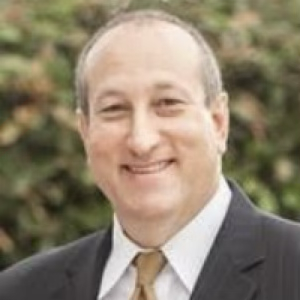
Johannes Stitz
While the image that many people associate with scientific careers may be that of a mundane workday in a laboratory, one job category falls far outside this cliche: crime scene investigators and experts. Over the past couple of decades, a slew of TV shows and movies have been dedicated to the experts who form the scientific backbone of crime investigations. From forensic pathologists to analysts investigating blood and tissue samples, these individuals have been lionized through pop culture, bringing their highly specialized fields of expertise to the mainstream.
With gun deaths nearing the 47,000 mark in the United States in 2024 alone, experts who focus on firearms are in high demand. “Forensic ballistics experts” is the term that is commonly used for people who are highly knowledgeable in the effects of guns in crimes, as well as in connecting specific firearms to specific crimes. Forensic ballistics experts are highly knowledgeable regarding the types of available firearms, calibers, and ammunition, as well as the trace evidence left on bullets, guns, bodies, and objects by their usage.
By analyzing so-called “striations,” or marks left on ammunition and barrels, a well-trained forensic ballistics expert can often identify the particular gun used in a specific crime, leading to the successful prosecution of a perpetrator. Additionally, they may be able to identify the caliber and type of gun used by observing the wound it has left on a victim’s body, or the impact it has made on a particular object, such as a wall, car, or piece of furniture.
Forensic ballistics experts may also be well-versed in legal and illegal modifications made to firearms, as well as different categories of homemade guns, from simple, single-shot weapons fashioned out of readily available scrap metal, or highly sophisticated firearms that can be manufactured using 3D printing technology.
In addition to gaining a wealth of knowledge on firearms-specific materials such as gunpowder, primers, and metals, a well-trained forensic ballistics expert will often be expected to stay abreast of new technologies and developments in firearms manufacturing, both on the legal and black markets. While some individuals can be seen working at crime scenes and deploying with other forensics experts, others work in laboratory settings where they pursue the highly technical task of firearms tracing. Additionally, forensic ballistics experts are often called to testify during criminal and civil proceedings, where they may aid in the prosecution of a perpetrator or give testimony in a case in which the liability of a firearms manufacturer is called into question.
But how can someone interested in forensic ballistics enter this varied and technical field? This guide is intended to help individuals orient themselves and give an overview of some educational programs available to prospective forensic ballistics experts.

Dr. Richard K. Pumerantz is a recognized expert in ammunition and firearms design who has been deeply involved in the manufacture of specialty munitions since 2005, including frangible ammunition and supercavitating projectiles for military and law enforcement applications.
As president and CEO of Ten-X Ammunition, Inc., Dr. Pumerantz holds a unique combination of federal and California licenses, allowing him to legally handle and evaluate a wide range of firearms and destructive devices. With an extensive background in ballistics, toolmark analysis, and shooting reconstruction, he has trained law enforcement agencies, including the DOJ, LAPD, and LASO, and is internationally recognized as a court-qualified expert witness in areas such as ammunition and firearm identification, failure analysis, and incident reconstruction.
ForensicsColleges.com: What is something you wish the public understood about forensic ballistic experts?
Dr. Pumerantz: The true role of the effective forensic ballistics expert is to illuminate the case facts to ensure the faithful retelling of the shooting incident. We are advocates for the facts and the truth, as best we can determine from the nuances we can carefully glean from the available evidence. We do not represent either side in a legal matter. Rather, we are the stalwart defenders of the truth.
ForensicsColleges.com: What advice would you give to aspiring forensic ballistics experts?
Dr. Pumerantz: Never compromise your integrity! When placed in the position to apply your years of experience and education to the matter at hand, never waver from the loyalty you have to presenting the truth. Even if the truth doesn’t fit the narrative of the party engaging your services, your honesty and integrity should always be rewarded.
Certificate courses in forensic ballistics may be a good option for individuals who are either already working in the forensic field and hoping to expand their knowledge to include ballistic science or those looking to get a start in the field without the time commitment of a full degree plan. The following courses have been selected for their variety and the skillsets they impart, and are hosted by fully accredited institutions.
Virginia Commonwealth University
Virginia Commonwealth University offers a certificate program in forensic firearms identification that is offered in-person at the school’s main campus in the city of Richmond. The program lasts for a total of 18 months and is geared towards individuals who are already working the forensic field and looking to expand their skill set into the world of firearms and ballistics. The aim is to produce experts who are “bench-ready,” and competent in using microscopic analysis techniques for crime scene investigation.
The University of North Texas is in Denton, Texas, and may be best known for its prestigious music school. The university hosts a forensic science certificate program that is administered in person and can be completed over two to three semesters. It is available to individuals who have or are completing a biology, chemistry, or biochemistry degree, and heavily emphasizes knowledge in ballistics analysis.
The University of Syracuse is located in the city of the same name in New York. Syracuse offers a certificate of advanced study in firearm and toolmark identification, open to individuals who have already completed a related bachelor’s degree program. Comprising 12 credits, the program can be completed in as little as 12 months and focuses entirely on ballistics and firearms identification.
As of this writing in February 2024, no specialized bachelor’s degree programs are specifically designed for forensic ballistics experts. However, there are quite a few degree plans available in the field of forensic science, many of which emphasize the skills and knowledge that is vital to forensic ballistics. Fully accredited institutions offer the following degree plans and may provide the ideal stepping stone for individuals looking to become forensic ballistics specialists.
Grand Canyon University is a for-profit private institution with a main campus in Phoenix, Arizona. In recent years, Grand Canyon has ventured into the distance learning space and offers most if not all of its degree plans through online courses and in-person at one of its campuses.
Grand Canyon’s bachelor of science in forensic science covers all major field components, from crime scene investigation to toxicology and legal proceedings. Of particular interest to prospective students interested in forensic ballistics is the fact that firearms study and identification is a major component of the degree program.
Jacksonville University is located in the Alabama city of the same name and offers a forensic investigation bachelor through its college of social and behavioral studies. The major is broken into two tracks, one focused on criminal investigations, the other on forensic laboratory work. The latter should be of particular interest to prospective students with an interest in the field of ballistic forensics.
To opt for the forensic track, students must either be enrolled in a chemistry, biology, or physics degree program or choose one of these degrees as their minor, to occur concurrently with their studies in forensic science.
Purdue University Northwest has two campuses in Indiana, and offers an on-campus bachelor’s of science degree in forensic science. Purdue Northwest’s curriculum leans heavily on the hard sciences, including chemistry, biology and physics. In addition to scientific fundamentals, the university’s curriculum includes introductory courses in forensic work and workday fundamentals such as courtroom demeanor, an indispensable skill set for forensic experts who may be expected to testify during criminal and civil proceedings.
George Mason University is located in Fairfax, Virginia, close to the headquarters of many law enforcement agencies, including the CIA and FBI. The school offers a bachelor of science degree in forensic science to prepare students for entry-level positions in law enforcement, intelligence, and security agencies, or for further studies in graduate school.
In addition to basics in crime scene investigation and scientific fundamentals, George Mason’s program also includes a major component of firearms examination, making the university’s program a viable choice for those interested in ballistic forensics.
Regional organizations that supervise the institutions within their specific geographic area handle program accreditations for university degree programs. Accreditation refers to ensuring that academic standards are being met across an institution. This can involve reviewing course materials and instruction and keeping an eye on enrolled students’ graduation rates and academic outcomes. In the US, the following accreditation bodies supervise nearly all institutions of higher learning:
The Association of Firearm and Toolmark Examiners (AFTE) offers a certification in this discipline. To qualify, candidates must:
Depending on the area of expertise, successful candidates can use the following designations:

Johannes Stitz
Johannes Stitz is a freelance writer and researcher based in the Southwest. He’s written about various topics in engineering careers. Before turning to freelance writing, he spent nearly a decade in the arts as a booker and event manager.

Kimmy Gustafson
Kimmy Gustafson’s expertise and passion for investigative storytelling extends to the world of forensics, where she brings a wealth of knowledge and captivating narratives to readers seeking insights into this intriguing world. She has interviewed experts on little-known topics, such as how climate crimes are investigated and prosecuted, and has written for ForensicsColleges.com since 2019.
Kimmy has been a freelance writer for more than a decade, writing hundreds of articles on a wide variety of topics such as startups, nonprofits, healthcare, kiteboarding, the outdoors, and higher education. She is passionate about seeing the world and has traveled to over 27 countries. She holds a bachelor’s degree in journalism from the University of Oregon. When not working, she can be found outdoors, parenting, kiteboarding, or cooking.